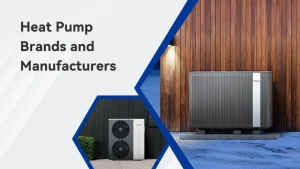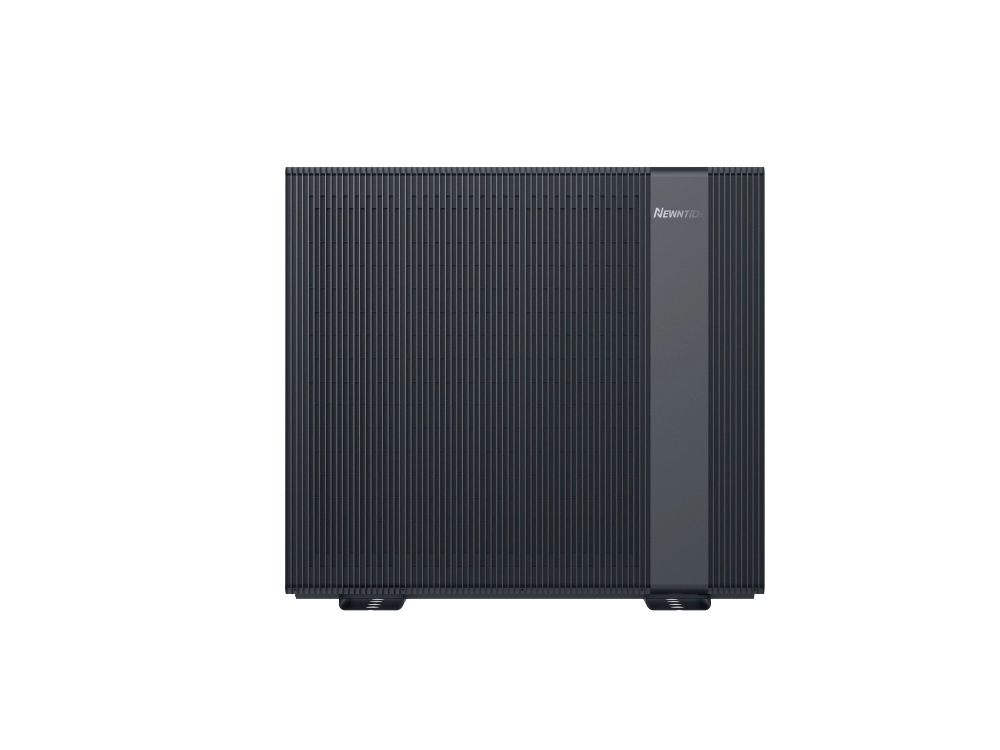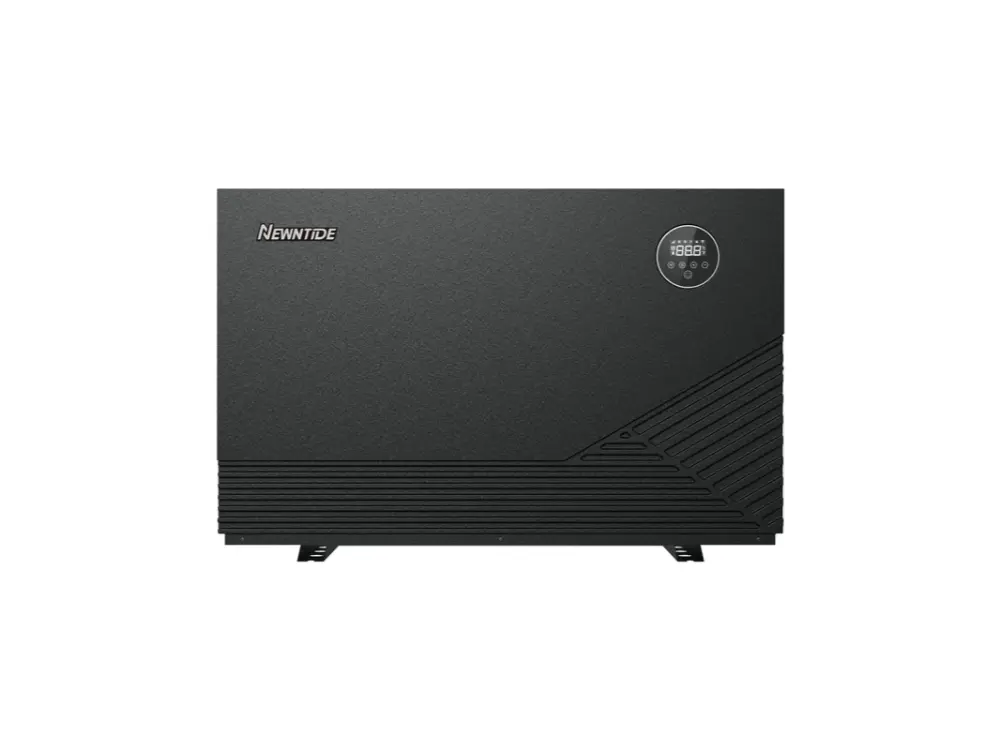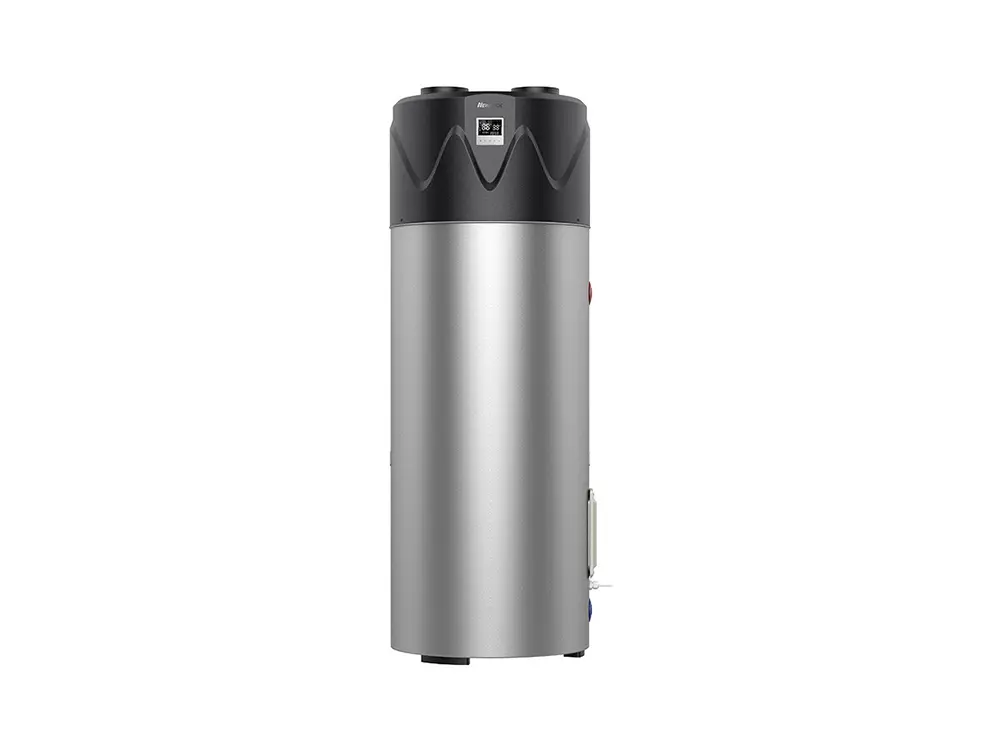
Introduction
Heat pumps are a variant of HVAC (Heating, Ventilation, and Air Conditioning) systems. They transfer heat from one location to another by running on electricity.
As you can see, the heat pump market is undergoing considerable growth internationally. It’s owing to an increment in demand and support of government policies in numerous countries.
You’ll find many top players in the worldwide heat pump market. Here, we’ll look into the best brands and manufacturers of heat pumps as of 2024.
We’ll also explain the definition and function of heat pumps and explore their different types. Lastly, we’ll also delve into picking the precise heat pump for your home or business.
So, let’s explore all.
What is a Heat Pump?
A heat pump is a central all-in-one cooling and heating system. Similar to an air conditioner, it cools your home. On the other hand, it furthermore provides heat.
It implies that a heat pump operates both in summer and winter. In the summer, it employs a refrigerant to pull heat from inside your home. The system’s compressor then releases the heat outside.
In winter, a heat pump works akin to a heater. In cooler months, it uses refrigerant to extract heat from outdoors. It then transfers it inside your home, hence working in reverse.
A heat pump employs a reversing valve to alter from cooling to heating mode. It does this during the cooler months. Even when it’s cold outdoors, the outdoor air has adequate heat to supply heating.
Heat pumps pump cool or warm air from one location to another. Thus, they use electricity for this. They don’t burn fossil fuels, in particular natural gas, to generate heat. That makes heat pumps energy-efficient and excellent devices for the environment.
Different Types of Heat Pumps
There are three chief variants of heat pumps. They have the same working principles, except that they pull heat from different sources.
Let’s glance at each of them:
1. Air-Source Heat Pumps
Air-source heat pumps are otherwise called air-to-air heat pumps. They extract heat from the outside air and transfer it into your home. They’re comparatively inexpensive and the easiest heat pump to install, and they utilize less space.
When correctly installed, air-source heat pumps provide effectual cooling and heating for your home. They are among the top heat pumps for residential usage.
2. Water-Source Heat Pumps
A water-source heat pump is a cooling and heating system type. It extracts heat energy from water sources like lakes, rivers, ponds, mine water, etc. It does this even when the water temperature is lower than the needed air temperature inside.
Water-source heat pumps are fitting for homes and businesses situated close to water sources. They are also sustainable and energy-efficient and can be installed in different buildings.
Water-source and air-source heat pumps operate similarly. However, the former uses water rather than air to extract and release heat.
3. Geothermal Heat Pumps
Geothermal heat pumps are one of the finest energy-efficient ways to cool and heat buildings. They are also called ground-source heat pumps.
Like other heat pumps, they pull and release heat in and out of the home. But they don’t exchange heat with the air outdoors. Instead, they use the persistent temperature 6 feet beneath the ground. Here, the average temperature is 55 °F.
The underground temperature is usually almost warmer than winter air. That’s the reason geothermal heat pumps have a more efficient function, particularly in winter months.
Such a heat pump is quieter and more reliable than an air-source heat pump. However, a geothermal heat pump is not popular due to greater installation costs.
List of the 11 Best Heat Pump Brands 2024
Here are the 11 best brands and manufacturers of heat pumps as of 2024:
1. Carrier
Carrier is one of the most reliable heat pump companies. It’s an American multinational provider of HVAC systems based in Florida, USA.
You can see that Carrier offers a wide variety of heat pumps. It has also recently introduced a new heat pump series. It’s according to the US Department of Energy’s minimal efficiency requirements 2023. Carrier heat pumps are known to work efficiently but without noise.
Additionally, Carrier has over 75 leading brands, including Logic, CIAT and Bryant.
Willis Carrier established the company as Carrier Engineering Corporation in 1915. He is considered the developer of modern air conditioning.
2. Goodman
Goodman is a brand of HVAC systems that includes heat pumps. It’s a subdivision of Daikin Group, the biggest HVAC system manufacturer.
Harold V. Goodman founded Goodman in 1975 in Houston, Texas, USA. Its headquarters are in the Daikin Texas Technology Park, located near Houston.
Reviewers praise Goodman heat pumps for being energy-efficient and reliable, even in severe weather conditions. Goodman units also have a long lifespan and require fewer repairs. They also help reduce energy bills while improving indoor comfort.
3. NEWNTIDE
NEWNTIDE is one of the chief heat pump makers in China.
Established in 2003, NEWNTIDE has over 20 years of experience in manufacturing heat pump solutions. It’s particularly known as one of the best air-to-water heat pump manufacturers.
The company’s name actually means “NEW TIDE”. It shows that the company is proceeding to lead the heat pump industry.
The company makes a competitive product range that is broadly acclaimed in China and the world.
These include:
- house heating/cooling heat pumps
- heat pump water heaters
- swimming pool heat pumps
- heat pump dryers
The company is headquartered in Zengcheng, Guangdong, China.
4. Lennox
Lennox is one of the best heat pump brands as of 2024.
The Lennox brand’s benefits are efficiency and quality, which bring peace of mind. Its heat pumps come with some of the most prime efficiency ratings. Its products are durable and reliable, which means a long lifespan and fewer repairs.
Lennox works in over 70 countries, with manufacturing facilities in the USA, India, Germany and more. It was founded in Iowa, USA, in 1895 and is centered in Richardson, Texas, USA.
Lennox heat pumps are distinguished for their quiet functioning. Depending on the model, they also have about 20 years of warranty.
5. Amana
Amana is an American brand that makes HVAC products, including heat pumps. Its products are considered quiet, energy-efficient, cost-efficient, and according to high standards.
Furthermore, some Amana heat pump models feature ComfortNet technology. It’s a communication technology that allows users to control various aspects. It includes adjustment of the heat pump system using a mobile app.
Amana gives high priority to American Pride. That’s why its products, including heat pumps systems are made in the USA.
The company was established in Middle Amana, Iowa, USA in 1934. Today, it’s headquartered in Newton, Iowa.
6. Coleman
Coleman is a key player in the HVAC industry. It provides reliable and cost-efficient products like heat pumps. The company offers one of the best product warranties, including a money-back guarantee.
Coleman was set up in 1900. Meanwhile, Coleman Heating & Air Conditioning started as part of the Coleman company in 1958. It was founded in Wichita, Kansas, USA, and’s headquartered today.
Furthermore, the company was taken over by Johnson Controls in 1996. It’s the same company that also bought York. Coleman HVAC products are manufactured in the USA.
7. Trane
Trane was founded as the Trane Company in 1913 in La Crosse, Wisconsin, USA. It is now one of the finest fabricators of heat pumps.
The company’s heat pumps incorporate reliability and remain a widely known choice for homeowners. It’s despite their high prices. Reviewers praise the quality of Trane heat pumps as the highest available.
The company offers a distinctive collection of heat pump models that fulfill varying needs. Trane’s headquarters lies in Dublin, Ireland. Yet it also has USA operations in North Carolina.
The company’s heat pumps come with a standard 10-year warranty. The compressors of some units are also covered by a 12-year expanded warranty.
8. Rheem
Rheem is undoubtedly one of the top heat manufacturers on a global level. The company has an existence in over 80 countries and is centered in Atlanta, USA.
Rheem produces economical HVAC equipment that’s durable and energy efficient. The products are also compatible with its app, Amazon Alexa, and other voice assistants.
Reviewers admire the manufacturer for the quality of its products. Established in 1925, the American company produces heat pumps that operate reliably and quietly.
9. Bryant
Bryant is a budget brand in the HVAC industry. It’s owned by the company Carrier we discussed earlier. Besides their outer cabinets, Carrier and Bryant’s products are almost similar.
Note that Bryant heat pumps cost less than 5-15% less than Carrier’s. That makes Bryant heat pumps a prime choice at a cheaper price. As one of the top heat pump brands, its products are versatile, energy-efficient, and quiet.
Bryant was established in 1904 in Cleveland, Ohio, USA. In 1955, it integrated with Carrier.
10. York
York is an American heat pump brand that was founded in 1874. It’s a renowned name in the HVAC industry, making various products.
Experts say its equipment, including heat pumps, is budget-friendly and high-quality. The company also provides up-to-the-mark warranties. It carries a 10-year warranty on parts and a one-year labor warranty.
York was founded in York, Pennsylvania, USA. It functions as a brand under Johnson Controls, which bought it in 2005. The company’s products are fabricated in North America.
Many famous buildings in the world use York products. Some examples include:
- Empire State Building (USA)
- Sydney Opera House (Australia)
11. Daikin
Established in 1924, Daikin is considered the worldwide leader in heat pump systems. Its headquarters are in Osaka, Japan.
The company operates more than 160 countries across varying regions:
- Europe
- Africa
- Asia
- North America
Since 2006, it has installed around 1.2 million water heat pumps in Europe. The company fabricates a range of heat pumps and believes in providing quality products.
It’s investing in incrementing production capacity to fulfill rising heat pump demand globally. It’s also planning to elevate its manufacturing capacity further. It includes producing one million water heat pumps in a year by 2025.
How do I pick the fitting heat pump for my home or business?
You may consider installing a heat pump to condition your home or business location. Hence, it’s a great way to enhance its energy efficiency. Note that a heat pump won’t be a fitting system for entirely all homes or businesses. Yet, keep noteworthy factors in mind before choosing one.
Some of these are:
1. Assess the building’s energy needs
The first significant factor you need to remember is assessing the building’s energy needs. When considering this, reflect on parameters like size, efficiency and space.
For instance, consider a 2000-square-foot home or office. It may need a 40000 BTU (British Thermal Units) heat pump. That makes it about a 3.5-ton-sized heat pump.
Typically, a heat pump must be 20 BTUs per square foot of living capacity. Most heat pumps are 1 to 5 tons in size.
Due to high heat demand, larger buildings may require a geothermal heat pump. Air-source heat pumps are more economical in new buildings than water-source heat pumps.
Also, opt for a model with a greater SEER (Seasonal Energy Efficiency Ratio). A high SEER value means that the heat pump utilizes less energy.
2. Consider the location and climate conditions
Before choosing a heat pump, consider geographical location and climate conditions.
Although heat pumps are designed to work well in most locations, some models perform better. It’s specifically in areas that experience specific weather patterns compared to others.
For example, you may live in a location that experiences harsh winters. In such conditions, choose a model with a higher Seasonal Coefficient Of Performance (SCOP) rating. It specifies better performance, specifically in cold temperatures.
Note that air-source heat pumps typically perform well in moderate climates. On the other hand, water-source and geothermal heat pumps perform better in more severe conditions.
3. Choose the right type of heat pump
A specific heat pump type may not suit your home or business. Thus, choosing the right heat pump type is also crucial.
Air-source heat pumps suit smaller homes or businesses in urban areas with appropriate insulation. In contrast, geothermal heat pumps suit bigger homes or businesses with greater surrounding areas. They also necessitate more space to be installed.
Let’s also consider water-source heat pumps. Businesses and homes close to a water body, ideally within 100 meters, find them fitting. You should also have permission to use the water source for the heat pump. Such heat pumps also have substantial installation expenses.
4. Reflect on the initial investment and long-term operating costs
When selecting a heat pump, consider the initial investment and the long-term operating costs.
Note that heat pumps can cost between $4000 and $8000. It includes the unit price, labor, and other required equipment. On average, installing a new heat pump costs around $6500.
A large, energy-efficient heat pump can cost up to $14300, including labor and materials. The more energy-efficient the heat pump is, the higher its upfront price. Hence, it will eventually lower your utility bills.
Heat pump systems typically require little maintenance. Maintenance charges are around $75-$300 per year. If you maintain your heat pump properly, your energy bills will be lower.
5. Consider the brand and manufacturer’s reputation
While researching the varying models of heat pumps, also consider the brand and manufacturer’s reputation.
Select a brand or manufacturer that offers a warranty of at least 10 years. This warranty should also be accompanied by exceptional customer service.
You can choose from reputable brands like Carrier, Daikin, and Lennox. All these brands offer warranties of more than 10 years. These brands have an established track record of producing high-quality and dependable products.
After researching, you may settle on an ideal heat pump that meets your requirements. Afterward, hire a well-known contractor in your region. Remember that they should be able to install that specific heat pump model.
Also, few HVAC companies are factory-authorized dealers who work for specific brands. Yet, they do not install heat pumps of other brands.
FAQs
How Long Do Heat Pumps Last?
Heat pumps are durable and long-running. Their average lifespan was around 15 years in the past. Owing to recent technological developments, modern heat pumps last around 20-25 years before being replaced.
It’s dependent on several factors like model, brand or manufacturer, maintenance, etc.
Are Incentives Available for Heat Pumps?
Over 30 countries provide incentives for heat pumps. To approximate, these cover over 70% of global heating demand. Some countries provide subsidies in grant form, while others use tax credits.
For instance, many incentives are available for heat pumps in the USA. These include:
- State Rebates
- Federal Tax Credits



